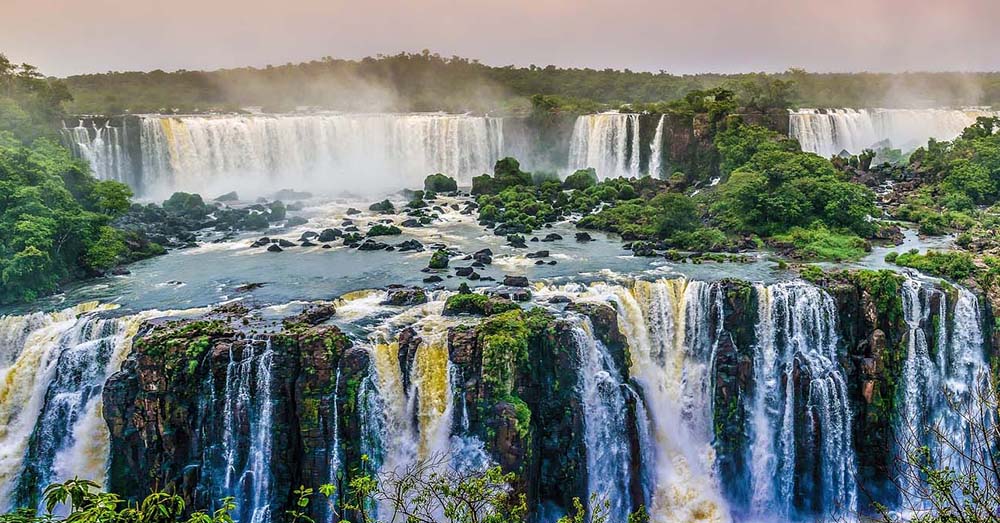How do we protect our fragile ecosystems and especially our rivers from the significant impact of human activity on our planet? In a recent paper on the issue, Rita Brara, a research fellow at the Institute of Economic Growth, New Delhi and Professor Maria Valeria Berros from the National University of Littoral, Santa Fe in Argentina note the possibility of attributing “legal personhood” to rivers in modern law and suggest the creation of a “world parliament of rivers”.
As they point out in the paper, many of the world’s major rivers have become dumping grounds for sewage and industrial waste which is degrading water quality and destroying biodiversity. Nowhere are these environmental concerns more of a challenge than in the Global South. In South America, countries such as Ecuador, Bolivia, Argentina and Chile have initiated debate or introduced reforms incorporating the rights of nature into national law according to Brara and Berros. In Colombia, Bangladesh and India, the legal system is directing governments to follow suit. In New Zealand, the iconic case of the Whanganui river has featured in legal agreements between local communities and the state. But all of this progress is weakened by the political reality of national borders, the researchers highlight, given the fact that many rivers cross multiple international boundaries.

A global body to protect the world’s rivers
The study says that even in jurisdictions where substantial progress has been made, powerful political and economic interests have conspired to by-pass new legislation or reforms, enabling a continued level of environmental damage and also diluting the rights of the indigenous peoples in future decision making. In New Zealand, the final agreement between the state and Maori people omitted the concept of water ownership, where a private power company retained the right to produce electricity from the Whanganui river. And while the river itself was granted the rights of “legal personhood”, it was the interests of the private operators that were incorporated into common law, the professors write. So while national governments throughout the world introduce various constitutional reforms aimed at affording strong legal protections to our vital rivers, these efforts are often undermined by sovereign boundaries and powerful domestic interests. Therefore, Rita Brara and Maria Valeria Berros argue that a permanent global body is required vested with the authority to act at local, national and supranational levels. In other words, a “World Parliament of Rivers” which could build on the existing water parliament concept.
Institutionalizing the rights and legal personality of rivers
The concept of a water parliament is not a new one. Through his theory of a parliament of things, the French philosopher Bruno Latour paved the way for a water parliament by including ordinary citizens, engineers and biologists in discussions on the sustainability of the Dordogne and Garonne rivers. He further developed this idea in 2018 through the establishment of “The Embassy of the Seas” which sought to give a political voice to all entities in the North Sea. Using the Latour water parliament idea as a model, could major transnational rivers such as the Amazon or Ganges benefit from a global body designated to look after their specific interests?
Democracy Without Borders’ co-founder Andreas Bummel and Jo Leinen, a former Member of the European Parliament, endorsed calls for water to be recognised as a “global common good” and for privatization to be halted in their 2018 book “A World Parliament: Governance and Democracy in the 21st century”. The idea of a global body to look after the interests of rivers as global commons has yet to become a reality. To ensure maximum representation, this body could include representatives from local river parliaments, national parliaments and civil society organisations as Brara and Berros argue. It could report on the state of the world’s rivers, provide recommendations and allow for the establishment and promotion of international standards for river water quality. Thereby giving a voice to rivers, institutionalizing their rights and their personhood. Unlike the local or national initiatives which operate under confines, a World Parliament of Rivers could provide the universal legal fortification which is currently lacking. In their book, Bummel and Leinen argue that a world water parliament, which addresses issues related to water as a common good, should be part of a global parliament that looks at all matters of global concern.
As governments continue to grapple with the negative effects of human activity on the environment and especially its devastating impact on river ecosystems, they must shift their focus from domestic policy-making which has a limited sovereign impact, towards an approach which deals effectively with these critical global issues at the international level, the new study rightfully says. This can be achieved through an inclusive global body empowered to take binding decisions to protect our river ecosystems. To effectively tackle the mounting challenges our major river systems face, we need a global solution. We need a World Parliament of Rivers.





